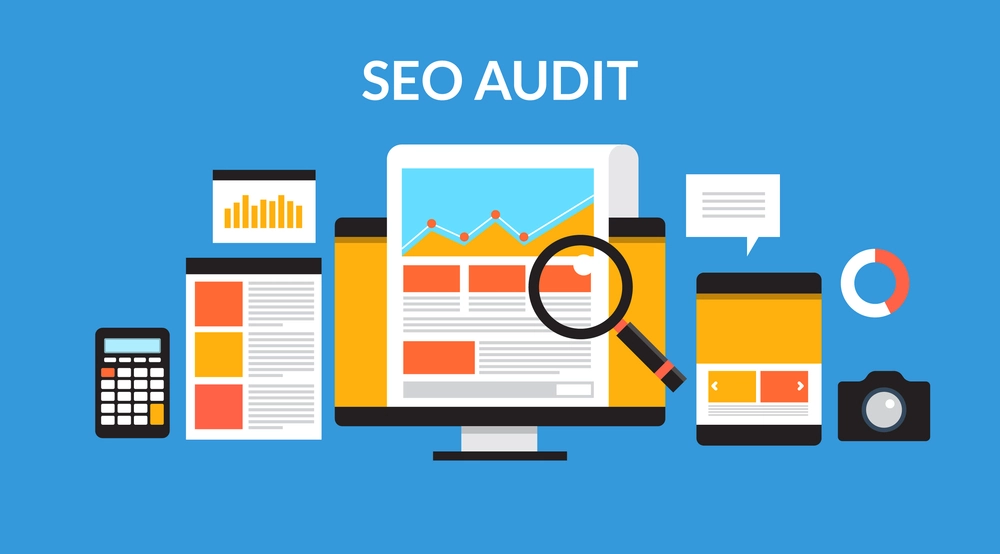SEO Audit review is the first step of any search engine optimization task because you must become aware of any issues which require attention and can then address them accordingly.
SEO offer web admins and SEO professionals alike a snapshot of the overall health of a website and current SEO practices used. Professionals may employ strategies or utilize Promote me’s “checklist” for conducting an audit report.

Set the goals for your website. When setting the goals for any site, ask yourself or ask from its customers what the goal of it should be. This initial declaration of purpose is necessary for all subsequent content to become redundant and save time and effort.
Define the website’s purpose.
Determine the purpose of your website in just 1-3 sentences. Your website won’t serve its intended purpose if its main goals include profiteering, business visibility or brand value creation; it should identify what goal(s) your site hopes to meet for your benefit as part of its intended use.
Importantly, each website page must serve a particular function.
Tech SEO Audit:
Use Google Search Console and Bing Webmaster Tools to conduct a technical SEO audit of your site. Specifically, its Index and Experience tools will indicate its importance for search engines.
SEO Audit Analyze Search Terms:
What keywords should people be searching for to find your products or website? Don’t think about rankings – instead, use each keyword with one-sentence descriptions of why people use that particular word to locate you and them. Analyze how your search terms provide value through customer acquisition – know their needs and why they choose your website as the solution!
This step lets you understand which keywords users are searching for that may have yet to be selected due to competitors using similar terms or SEO tools recommended for your website.
Search term analysis provides invaluable insights into whether or not the keywords on your website are hitting their mark.
SEO Audit Analyze Your Site’s Informational Structure:
Review all keywords used within URLs, folder structures, connections between leaf nodes, and your root URL and navigation (menu). Consider how often content is added, updated, or removed, as well as who writes the articles, its originality level, the person writing these pieces, how well the website appears visually, etc.
SEO requires the site’s informational structure. Toponymy refers to how things are named and inform users which keywords are being used across categories and pages; taxonomy describes how information is organized and classified folders within a hierarchy on a website.

Alternatively, if a website is too large to navigate effectively, record its general structure before concentrating on key aspects.
Assessing how straightforward the site’s information architecture is for visitors and search engines alike is vitally important.
Review ContentS to Determine Quality What type of content is produced on this website? Is it keyword-optimized or overblown? How effective is grammar usage in matching search terms? Does the content fulfill its primary goal and contribute to it being visible online?
Analyze the content:
Where did the content originate? Who wrote it and published it? Who edited and deleted content, and what’s the procedure?
On the one hand, this portion of an SEO audit will help you assess the importance of content to people searching for it; on the other hand, you’ll understand potential risks related to managing it on the current web process.
Keyword analysis:
After reviewing content, it’s time to analyze information to identify which keywords and pages are leading to search results and where traffic is coming from. While most web tracking tools don’t provide all the data you require for analysis purposes, Google Search Console and Bing Webmaster Tools are invaluable in aiding this step of an SEO audit.
This SEO audit aims to assess how closely content-driven keyword goals align with keywords used for search traffic.
Now that you have a list of keywords use Google Trends to get more insight into their level of popularity. Are these phrases losing their lustre or growing steadily? If your business goals align with certain search queries, but their interest drops quickly, be aware of this phenomenon.
If you are an entrepreneur searching for relevant keywords to add, this article outlines best practices for keyword research for entrepreneurs.
Review the KPIs and reporting process.
Examine KPIs and Reporting Method
Surprisingly, so few SEO and business owners take the time to investigate reporting processes or website performance KPIs.
- What performance indicators (KPIs) are you currently employing, and are they beneficial to your businesses? Who collects the data and compiles reports?
- If an SEO agency provides reports, it is recommended to read them closely and determine their utility for improving your site. Are these reports providing useful data that will allow for future site enhancement?
- Reporting should elucidate which keywords drive significant traffic and conversions; and identify which sections or pages perform best or worst on any given website.
- An audit will identify any significant flaws in your SEO techniques and identify areas for improvement.
- Insufficient reporting may lead to errors in using SEO techniques and methods, potentially resulting in numerous mistakes and flaws in implementation.

Should You SEO Audit Your Site’s Backlinks?
An audit of a website’s backlinks often takes time (and money) since SEO tools only report backlink information within their database rather than those shared with search engines (this makes perfect sense!). Search engines do not disclose such details directly to website owners (I hope that makes sense!).
However, if you purchase backlinks or use one of the “most effective link-building service providers worldwide,” this step becomes imperative. Review websites where backlinks were placed to identify any “spammy” ones; even if no notifications from Google’s spam team currently exist for such backlinks, chances are high they’ll eventually appear – although, in many instances, these backlinks go ignored altogether by Google anyway!
Make recommendations and create the roadmap:
The final part of an SEO review report is essential if your purpose is more than simply auditing. There may be issues to fix or ways that improvements could be made to improve the website itself.
Improvements may cost money; in certain instances, they’re worthwhile, but in others, they might not.
Conclusions:
SEO auditing is complex, yet many can attempt it themselves without expert assistance. Are you conducting an audit without knowledge of SEO? Nope, but with some perseverance, it may work out. Utilizing “SEO Tools” could work, though you must keep in mind they don’t access databases of search engines (Google or otherwise). Plus, most are just parsers which use basic methods with unreliable KPIs, so for maximum benefit and comprehensive reports, it would be wiser to purchase professional services instead.




